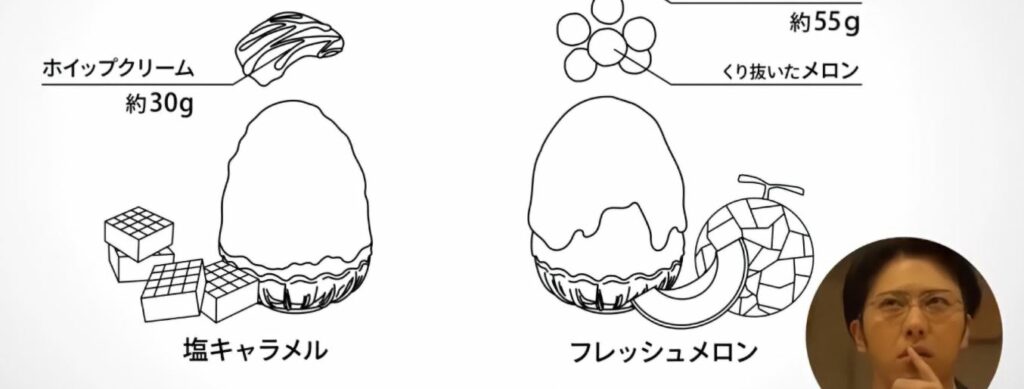
Until the advent of streaming services it was difficult to get hold of TV series from Japan or Korea unless they were dubbed for TV.
Now thanks to Netflix and others we can enjoy content in the original language whenever we want.
To see how pop culture mirrors deeper cultural values, let us take a look at a Japanese Netflix series about a purportedly “typical” Japanese business man called “Kantaro: The Sweet Tooth Salaryman.”
Kantaro works in a stereotypically Japanese office and is admired for his diligence and seriousness. Behind that austere façade, however, he nurtures a sweet secret: he writes an anonymous dessert blog—and slips out during client visits to test every notable café, ice-cream parlour and restaurant in town. Any colleague or boss who threatens his tight schedule meets an icy glare.
The result is a string of comedic mix-ups. To get a little "taste" let us look at a short clip on Youtube in which Kantaro sneaks off to sample kakigōri, a Japanese shaved-ice sorbet, at a trendy shop. (Click on image to start video)

What can we observe in this clip:
A. Japan’s passion for food is legendary. It is no coincidence that freshly caught tuna or flawless fruit can fetch exorbitant prices.
B. The obsession with detail shows in the way the sorbet is prepared—and in Kantaro’s almost sensual delight at merely watching the preparation. Long before Instagram, millions of Japanese were photographing meals.
C. Japan’s process orientation is obvious when 3-D graphics analyse subtle differences in sorbet texture down to the gram. In Japan, the “how” matters as much as the result.
D. The clip illustrates Japanese humour: the clash between Kantaro’s tightly controlled exterior and his ecstatic inner reaction. Later episodes feature pancake spaceships and dancing cocoa beans – although a bit unexpected for non-Japanese audiences these elements are not at all unusual for Japanese TV series that often veer into the fantastical.
E. A strong sense of aesthetics drives the effort to film preparation, presentation and tasting in such a luscious manner.
F. Japanese diners will overcome any obstacle to reach the one restaurant famed for the best sorbet, sushi or Sachertorte. This fixation on an acknowledged “best” extends far beyond food.
If you want a (lightly exaggerated) glimpse of very traditional (and rapidly disappearing) office life in Japan, the series is worth your time—complete with the hierarchically charged relationship to a choleric yet fundamentally kind boss and the obligatory client drinking sessions.
There are many other shows in which office workers play hooky to enjoy life—visiting famous bathhouses in every neighbourhood and sipping a cold beer afterwards. Such stories let Japanese viewers indulge in day-dreams that everyday reality often denies them.
For deeper insights into working with Japan, why not join our open workshops or book an in-house seminar by Japan Consulting Office.





